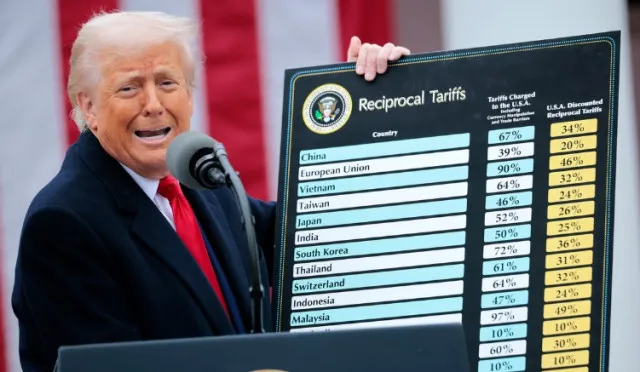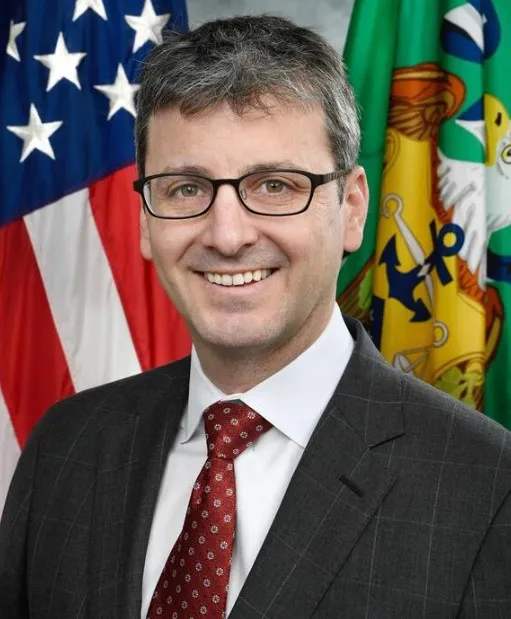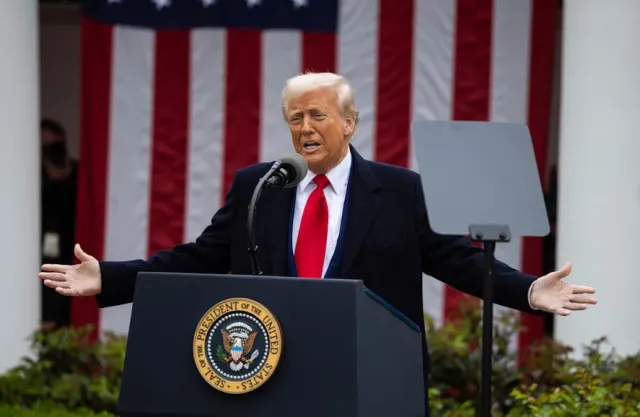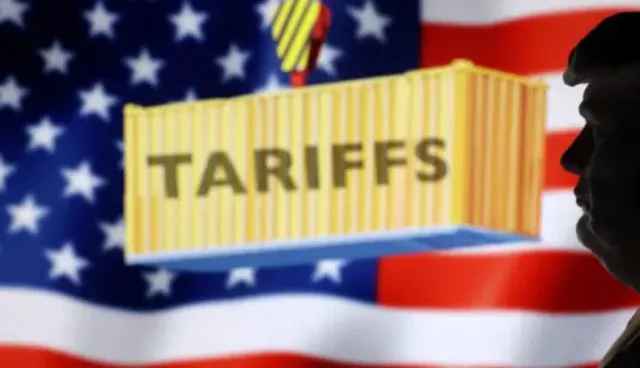The economist behind key research used for Donald Trump’s tariff admits his analysis was seriously flawed and ultimately incorrect.
An economist has recently come forward to express his concerns about the tariffs imposed by Donald Trump.
This economist, Brent Neiman, was surprised to learn that his research was used to calculate these controversial tariffs.
The tariffs, known as “Liberation Day” tariffs, have sparked debate and criticism since their announcement.
Trump announced tariffs to promote U.S. economic independence.
In a bid to achieve economic independence for the United States, Trump announced a series of tariffs on various imports.

He argued that American taxpayers have been unfairly treated for decades and that these tariffs would help protect domestic industries.
“Our taxpayers have been ripped off for more than 50 years, but it is not going to happen any more,” Trump claimed.
However, the move will raise import prices, impacting consumers who depend on these goods for groceries and household needs.
Economist says he miscalculated research that supported Donald Trump’s tariff decisions
Brent Neiman, who has served as an acting assistant secretary of the Treasury, expressed shock when he found out that his research was linked to the tariffs.
In a recent op-ed for The New York Times, he stated that he disagreed with the calculations made by the government.
He first reacted with disbelief, questioning how they determined such high tariff rates.

“How on earth did they calculate such huge rates,” he said.
“They got it wrong. Very wrong. I disagree fundamentally with the government’s trade policy and approach.”
Neiman emphasized that policymakers set the tariffs too high and should make them “dramatically smaller.”
He pointed out that the government’s approach to trade policy is fundamentally flawed.
According to Neiman, the differences in economic output and resources between countries mean that trade imbalances can happen for various reasons.
He referenced a quote from Nobel laureate Robert Solow to illustrate this point, highlighting the complexity of trade relationships.

The economist proposes a change to tariff policy
Neiman suggested in his commentary that policymakers should entirely reconsider the current methodology for calculating tariffs.
He proposed that if the government insists on keeping the tariffs, they should at least lower the rates significantly—potentially dividing them by four.
“I would strongly prefer that the policy and methodology be scrapped entirely,” concluded the Oxford and Harvard educated economist.
The tariffs have not only raised prices for consumers but have also negatively affected stock markets around the world.

Investors are wary of the potential economic fallout from these new trade policies.
Many believe that such tariffs could harm the U.S. economy by increasing costs for businesses and consumers alike.
The overall sentiment is that while the intention may have been to protect American jobs, the consequences could be counterproductive.